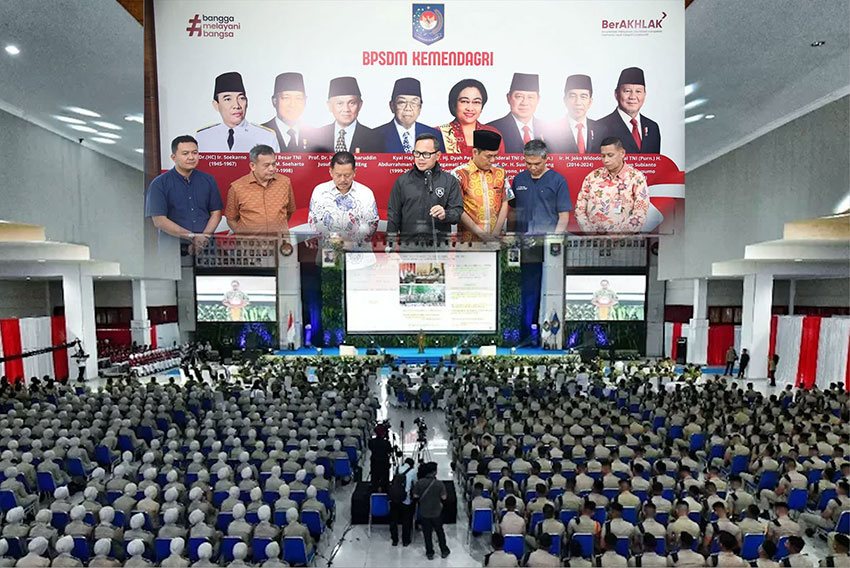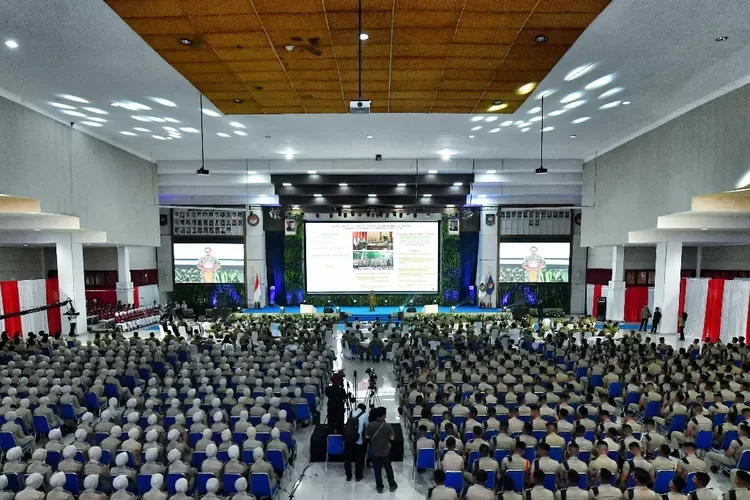Local Government Retreat: New Energy towards Effective Governance

One important moment that captured public attention at the end of June last year. As many as 86 local government heads from across Indonesia gathered for five days during the second wave retreat forum initiated by the Ministry of Home Affairs (Kemendagri) at the campus of the National Institute of Public Administration (IPDN) in Jatinangor, closing on Thursday, June 26, 2025. It was not just a routine meeting or ordinary training; instead, this forum showcased a new spirit in managing governance: more open, participatory, and focused on genuine public service.
Thus, this retreat also brings hope for a more dialogical governance model. So far, we have often seen regional heads merely as technical implementers of central instructions. However, regions hold many potentials, experiences, and even innovations that can inspire nationally. When regional heads are given space to voice their views and strategies, national policies become more relevant and contextual.
There is a shift from a “top-down” model to a “bottom-up” approach, or at least, a model of equality and mutual respect. Therefore, this retreat not only brought together local and central government officials but also facilitated interaction among local leaders. This creates a crucial inter-regional network, not just for networking purposes but as a platform for exchanging concrete solutions.
We know that many governance challenges in regions have similar patterns: slow bureaucracy, limited budgets, local political pressures, and issues with suboptimal public services. By meeting and engaging in dialogue, these leaders can learn from each other without waiting for changes from the center. Thus, in the long run, this inter-regional communication network can become a formidable force in driving comprehensive reform agendas.
Moreover, future development challenges are becoming increasingly complex. Climate crises, regional disparities, fiscal pressures, digital disinformation, and rising public expectations demand collaborative and swift approaches. The central government alone cannot address these challenges. The role of local leaders is no longer just to extend the central government’s reach but to act as local leaders capable of formulating context-based solutions while maintaining alignment with national policy lines.
Thus, this retreat is not the final answer. It is just the beginning. The real challenge lies in its follow-up actions. Will the spirit fostered in Jatinangor continue through joint evaluation mechanisms? Will there be regular forums to systematically hear the voices of regional heads? And most importantly, will central policies truly be open to criticism and correction if they do not align with regional realities?
A retreat only becomes meaningful when it becomes part of a sustainable policy ecosystem. There needs to be documentation systems, post-retreat reporting mechanisms, and direct integration into the process of drafting Medium-Term Regional Development Plans (RPJMD) and evaluating local government performance. Otherwise, this significant moment could evaporate like many forums before it.
Effective governance cannot be built solely on documents and instructions. It arises from the willingness to listen and collaborate. It stems from the courage to acknowledge that not all central policies are necessarily correct, and not all regions should be homogenized. Society does not need perfect leaders but leaders who are willing to learn, change, and work together. The local government retreat is an initial glimpse of that hope.
Therefore, the public also plays a crucial role: to oversee this process so that it does not stop at closed forums. As citizens, we must ensure that the spirit of this retreat truly impacts better public services—faster, cheaper, and more humane. Effective governance is not just about speeches and achievement reports but about how people feel assisted in their daily lives.
Should such retreats continue in the future? The answer is yes, indeed. It should even be developed into a regular national forum, involving not only local heads but also representatives of the people, academics, and community leaders. In a healthy democracy, dialogues like these are not luxuries but absolute necessities. Because it is from dialogue that wise policies emerge.
In simple terms, this retreat is a step towards more sensible governance. Not only thinking from behind desks but listening directly from field operators. Not just governing from the center but also understanding the pulse of the regions. This is a new form of public service that is not arrogant but humble and collaborative.
May the spirit of Jatinangor never fade. Because Indonesia needs more spaces like this—where its leaders can sit together, speak honestly, strengthen each other, and ultimately move in unison towards one goal: realizing a government that serves the people, not the other way around.
Prof. Dr. Ermaya Suradinata, SH, MH, MS, was the Governor of Lemhannas RI (2001-2005) and Director General of Social Politics at Depdagri RI (1998-2000). He is an Expert Council at BPIP RI in Geopolitics and Geostrategy Government Management. Chairman of the Advisory Board for the Center for Geopolitics & Geostrategy Studies Indonesia (CGSI).

